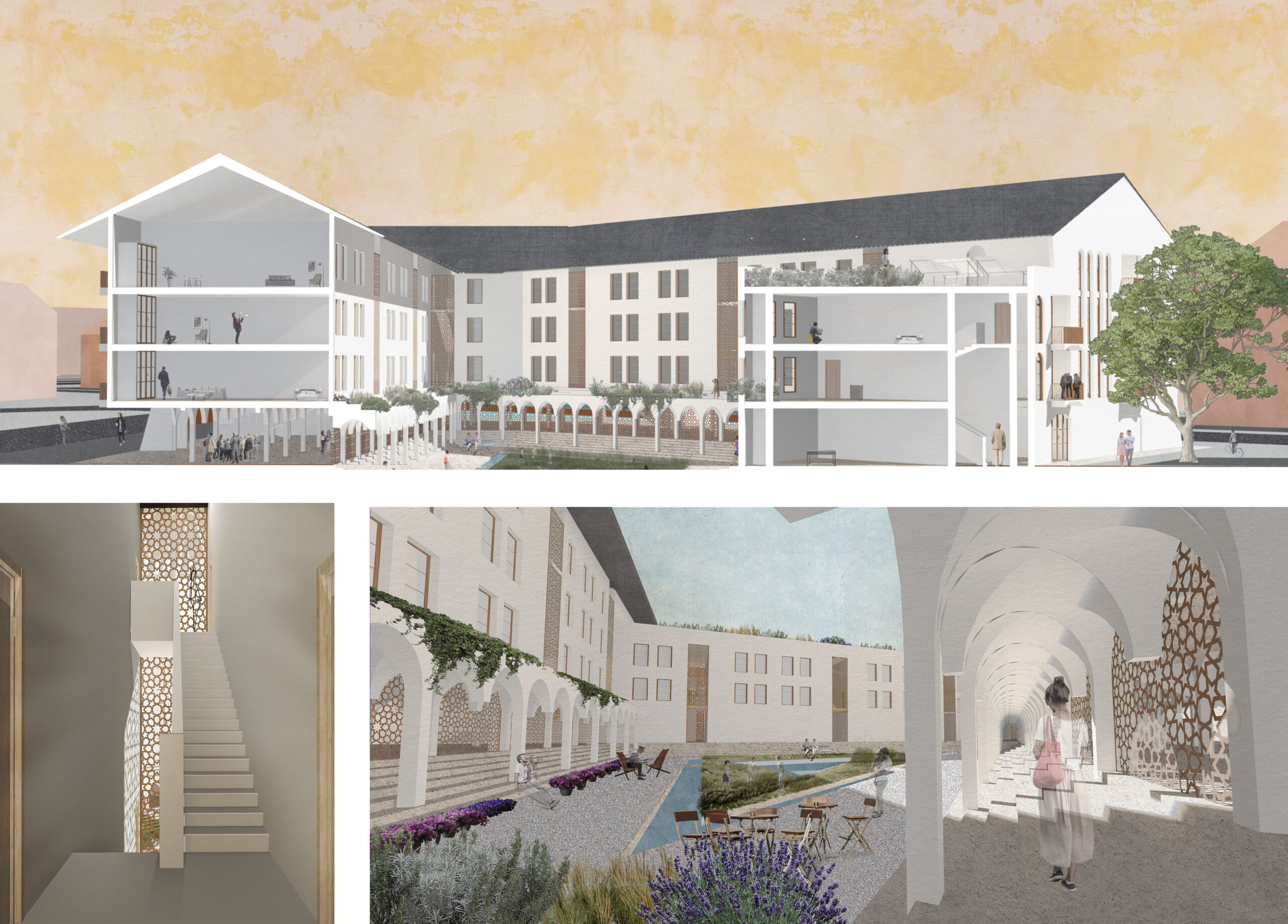My thesis merges vernacular building and engineering techniques, aiming to create a sustainable, appealing, and resilient built environment. Over the last few decades, global warming has become an increasingly prominent threat that we are aware of, but we have yet to fully understand the extent of its effects. In Spain, heatwaves have become more frequent, with the number of heatwaves increasing from 10 to 12 per decade between 1980 and 2000 to 24 between 2010 and 2020. Many solutions addressing climate change in the built environment lack considerations for livability, aesthetics and culture. This thesis addresses the need to harmonize sustainability and aesthetics, proposing repurposing mini-blocks in Andalucía, the southernmost province of Spain, creating sustainable residential complexes that incorporate culture, contemporary environmental engineering techniques, and phenomenological architecture principles. Andalucía has an extreme climate and a mix of cultures that cannot be found anywhere else. The region boasts a mix of pre-Roman, Arabic, and Catholic architecture and culture. My goal was to create healthy and comfortable living environments focused on culture and sustainability, resulting in a resilient built environment that promotes human wellness.



